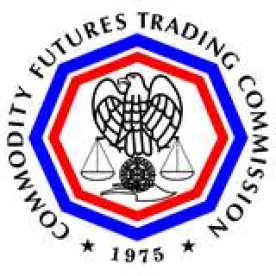On September 9, 2014, the Division of Swap Dealer and Intermediary Oversight of the Commodity Futures Trading Commission (CFTC) issued an exemptive letter [1] (the JOBS Act Exemptive Letter) for private fund managers relying on exemptions from registration as commodity pool operators (CPOs) with the CFTC. This relief harmonizes the CFTC’s CPO exemptions with the 2013 final rules issued by the Securities and Exchange Commission (SEC) relating to offerings exempt from registration under the Securities Act of 1933 (Securities Act) as required by the Jumpstart Our Business Startups Act of 2012 (JOBS Act).
As discussed more fully in a previous Investment Management Alert[2], the SEC’s 2013 JOBS Act rules eliminated the prohibition on general solicitations and advertising for certain (but not all) offerings made under Rule 506 of Regulation D (Reg D) of the Securities Act and Rule 144A of the Securities Act. Hedge funds and other private funds generally rely on the private offering exemption in Rule 506 to sell the interests in the funds. The SEC’s JOBS Act rulemaking created a new Section 506(c) of Rule 506 that gives private fund managers the option to advertise their funds so long as they abide by the additional terms of Section 506(c).
However, until the JOBS Act Exemptive Letter, many private fund managers who might otherwise have considered advertising their funds under the new Section 506(c) were still prohibited from doing so because of similar advertising prohibitions in CFTC exemptions related to CPO registration. Many private fund managers meet the definition of a CPO but avoid CPO registration under Section 4.13(a)(3) of the CFTC’s Part 4 Regulations. Section 4.13(a)(3) provides relief from CPO registration for funds trading a de minimis amount of futures but has its own prohibition on advertising that was not affected by the JOBS Act. Similarly, some private fund managers are registered as CPOs but operate their private funds under an exemption in Section 4.7 of the Part 4 Regulations that exempts a registered CPO from certain disclosure rules and other CFTC requirements with respect to funds limited to qualified eligible persons. Section 4.7 previously did not allow a CPO to use the new Section 506(c) for a Section 4.7 exempt fund.
The JOBS Act Exemptive Letter gives exemptive relief from the advertising prohibition in Section 4.13(a)(3) and the Section 506(c) prohibition in Section 4.7 so long as the fund manager (1) sells the fund under Section 506(c) and (2) files a claim for exemptive relief with the CFTC’s Division of Swap Dealer and Intermediary Oversight. This long-awaited relief will greatly expand the number of private fund managers eligible to consider the advertising options created by the JOBS Act.
If you have any questions regarding a potential Section 506(c) offering, please contact your regular Drinker Biddle lawyer and we will be happy to discuss the requirements of Section 506(c) and the CFTC filing required by the JOBS Act Exemptive Letter.
[1] See JOBS Act Exemptive Letter here.
[2] For a more complete discussion of the JOBS Act rules and additional final and proposed rules related to Reg D offerings, see our July 15, 2013, Investment Management Alert available here.



 />i
/>i

